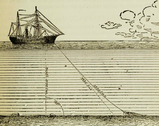Interview with Dr. Karl Banse 12/06/2012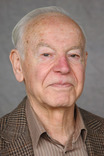 Dr. Karl Banse
The first SHIP interview features University of Washington emeritus professor of oceanography Dr. Karl Banse.
Dr. Banse was born in 1929 in Koenigsberg (now Kaliningrad). He studied oceanography at the University of Kiel before conducting his post-doctoral research in the northern Arabian Sea. Dr. Banse joined the University of Washington faculty in 1960. In preparation for this interview, I read Dr. Banse's autobiographical paper "Reflections About Chance in My Career, and on the Top-Down Regulated World," published in The Annual Review of Marine Science (July, 2012). Addendum: [Dr. Banse has asked that I note a correction to a statement made in the interview; the first chlorophyll detecting satellite was launched in 1976, not 1986. He also notes that the map shown in the video of the location of Koenigsberg does not show the historical borders of East Prussia. A period map is shown to the right. [Click the map for a larger view.] |
Interview with Dr. Paul Johnson 04/29/2013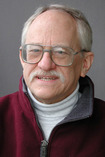 Dr. Paul Johnson
The second SHIP interview features Dr. Paul Johnson, University of Washington professor of oceanography and adjunct professor of earth and space science.
Dr. Johnson grew up in Illinois. He studied physics before completing a doctoral degree in geophysics at the University of Washington. He completed part of his post-doctoral research at the University of Dalhousie where he participated in project FAMOUS, the first expedition to employ ALVIN. Dr. Johnson has been a PI on multiple expeditions to the Juan de Fuca ridge. He has studied the deep biosphere, fluid circulation, and glass sponge reefs off the coast of Washington. In this interview we discuss the history of plate tectonic theory, ocean drilling, changes in science funding, and Dr. Johnson's experiences as a cruise PI. |
Interview with Dr. Karl Hufbauer 5/20/2013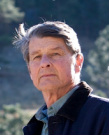 Dr. Karl Hufbauer
The third SHIP interview features Dr. Karl Hufbauer, emeritus professor of history at the University of California, Irvine.
Dr. Hufbauer grew up near La Jolla, California. After the completion of his sophomore year at Standford University, he took a summer job aboard the Scripps research vessel Spencer F. Baird on a cruise track from Point Loma to the Bering Sea. This voyage, the 1957 "Mukluk expedition", was one of several oceanographic expeditions associated with the International Geophysical Year (IGY). Elizabeth Shor has written that the Mukluk expedition was the first time that Swallow floats were used to measure deep ocean currents in the Pacific. In this interview we discuss Dr. Hufbauer's experience as an undergraduate student assistant during the Mukluk expedition (July 8th - August 26th, 1957). Four digitized slide images from the Mukluk expedition are visible online in the Scripps digital collections. Dr. Hufbauer compiled some basic information about the Mukluk expedition in a word document available below: |
Interview with Dr. Hufbauer from antony adler on Vimeo.
| ||||||
Interview with Dr. Russ McDuff 3/5/2014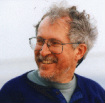 Dr. Russ McDuff Dr. Russ McDuff
The fourth SHIP interview features Dr. Russ McDuff, emeritus professor of oceanography and former director of the School of Oceanography at the University of Washington.
Dr. McDuff studied at Caltech, Scripps, and MIT before accepting a position the University of Washington. In this interview we discussed Dr. McDuff's experience as a graduate student working with material collected by the Ocean Drilling Program, as well as his work on some of the first deep-sea vent research cruises. Dr. McDuff was in the midst of his graduate studies in marine chemistry when the discovery of hydrothermal vents near the Galapagos in 1977 - the existence of which had only been theorized - revolutionized oceanographers' understanding of sea-water chemistry, circulation, and marine geology. We discussed Dr. McDuff's work studying vent sites on the Juan de Fuca Ridge as well as the history of the oceanography department at the University of Washington and technological and methodological changes in vent sampling instrumentation. |
